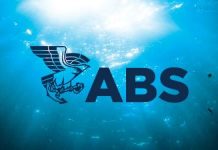
MSC will install Jotun HullSkater, which is claimed to be the first robotic technology designed for proactive cleaning, and the specially developed high-performance SeaQuantum Skate antifouling, on the 2010-built container vessel MSC Eva.
The Swiss-based carrier has signed an agreement with Jotun, an Italian organisation responsible for the sale of decorative paints and marine, protective and powder coatings, to use Jotun Hull Skating Solutions (HSS) on its 14,000TEU boxship.
The Jotun HullSkater, which utilises magnetic wheels to cling to vessel hulls, works to remove individual bacteria and biofilm before macro-fouling grows. At such an early stage, fouling can be removed without risk of damage to, or erosion of, coating or brushes. This not only delivers peak performance, and limits idle days for shipowners, but minimises the need for reactive cleaning, cutting costs, environmental risk and optimising fleet flexibility.
Jotun HSS was launched in March this year and is designed to help shipowners facing the most severe biofouling challenges, according to a statement. It combines the antifouling and robotic proactive cleaner, housed onboard the chosen vessel, with proactive condition monitoring, high-end technical service, and performance and service level guarantees.

Jotun operators control the HullSkater via a 4G connection, conducting cleaning and inspections in line with individual vessel schedules developed through a proprietary algorithm and big data.
MSC Eva will install HSS at GWD Guangzhou Shipyard in China later in 2020, at the same time as it undergoes class renewal and scrubber installation. The vessel’s flexible sailing pattern, with exposure to differing water temperatures and environments, leads to its severe biofouling challenge.
“We have worked with MSC as a partner to provide premium anti-fouling coatings to their advanced fleet over many years and knew that HSS would chime with their ambitions,” commented Alberto Genovesi, Jotun marine global key account manager, performance coatings.
Jotun believes that if all ships facing such challenges adopted the HSS proactive approach – cleaning hulls before biofouling takes hold and therefore eliminating associated drag and fuel consumption – maritime CO₂ emissions could be reduced by at least 40 million tonnes per year.
MSC head of newbuildings, Giuseppe Garguilo supposes HSS will support to the problem of biofouling, “equating to strong benefits for the natural world – through reduced emissions and decreased spread of invasive species.”
“Clean hulls are only one piece of the jigsaw when it comes to delivering a more sustainable shipping industry, but a central piece nonetheless,” he highlighted.
HSS has been developed over several years and brought to market by Jotun in co-operation with Kongsberg. Comprehensive testing has been taking place on vessels, in partnership with shipowners, such as MSC, and at selected ports worldwide.







